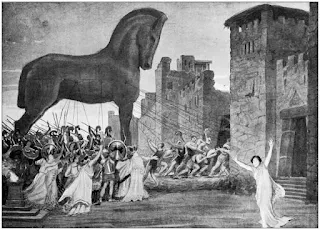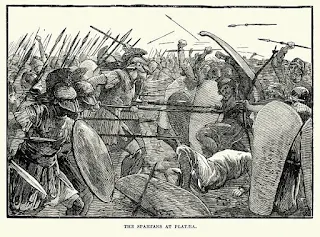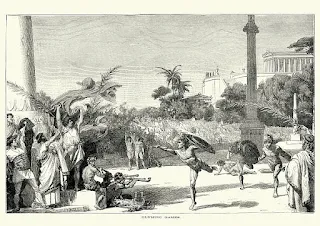Ancient Greece was a powerful and influential civilization that played a significant role in shaping the modern world. From the development of democracy to the birth of the Olympic Games, ancient Greece was a hub of innovation, art, and culture.
In this post, we'll explore 10 key events that shaped ancient Greece and had a lasting impact on Western civilization.
The Minoan Civilizations
The Minoan civilization, which flourished on the island of Crete from around 2600 to 1100 BCE, laid the foundation for ancient Greek culture. The Minoans were known for their advanced palace architecture, vibrant art, and extensive trade networks.
The Trojan War
The Trojan War, which took place around 1200 BCE, was a pivotal event in ancient Greek history. The epic conflict between the city-states of Troy and Greece, as told in Homer's Iliad, had a profound impact on Greek literature, art, and identity.
The Rise of City-States
As the Minoan civilization declined, city-states like Athens, Sparta, and Corinth began to emerge. These city-states, which flourished from around 800 to 400 BCE, developed distinct cultures, governments, and economies that shaped the course of ancient Greek history.
The Birth of Democracy
In 508 BCE, Athens became the first city-state to adopt democracy. This radical new system of government, where power was held by the people rather than a monarch or aristocracy, had a profound impact on Western politics.
The Persian Wars
The Persian Wars, which took place from 499 to 449 BCE, were a series of conflicts between ancient Greece and the Persian Empire. The Greek victory in these wars marked a significant turning point in ancient Greek history and cemented their reputation as a major military power.
The Golden Age of Athens
The 5th century BCE is often referred to as the Golden Age of Athens. During this period, Athens experienced a cultural and philosophical flowering, producing iconic figures like Socrates, Plato, and Aristotle.
The Peloponnesian War
The Peloponnesian War, which took place from 431 to 404 BCE, was a devastating conflict between Athens and Sparta. The war had a profound impact on ancient Greek politics, economy, and culture.
The Rise of Macedon
In the 4th century BCE, Macedon, a kingdom in northern Greece, began to rise to prominence. Under the leadership of Philip II and his son Alexander the Great, Macedon would go on to conquer a vast portion of the known world, spreading Greek culture and language throughout.
The Hellenistic Period
The Hellenistic period, which spanned from 323 to 31 BCE, marked the spread of Greek culture throughout the Mediterranean world. During this period, Greek cities and kingdoms flourished, producing significant advances in science, philosophy, and art.
The Roman Conquest
In 146 BCE, ancient Greece was conquered by the Roman Empire. While this marked the end of Greek independence, it also led to the spread of Greek culture and language throughout the Roman world.
These 10 key events shaped ancient Greece into the powerful, innovative, and culturally rich civilization that we remember today. From the birth of democracy to the rise of Macedon, ancient Greece left an indelible mark on Western civilization.







